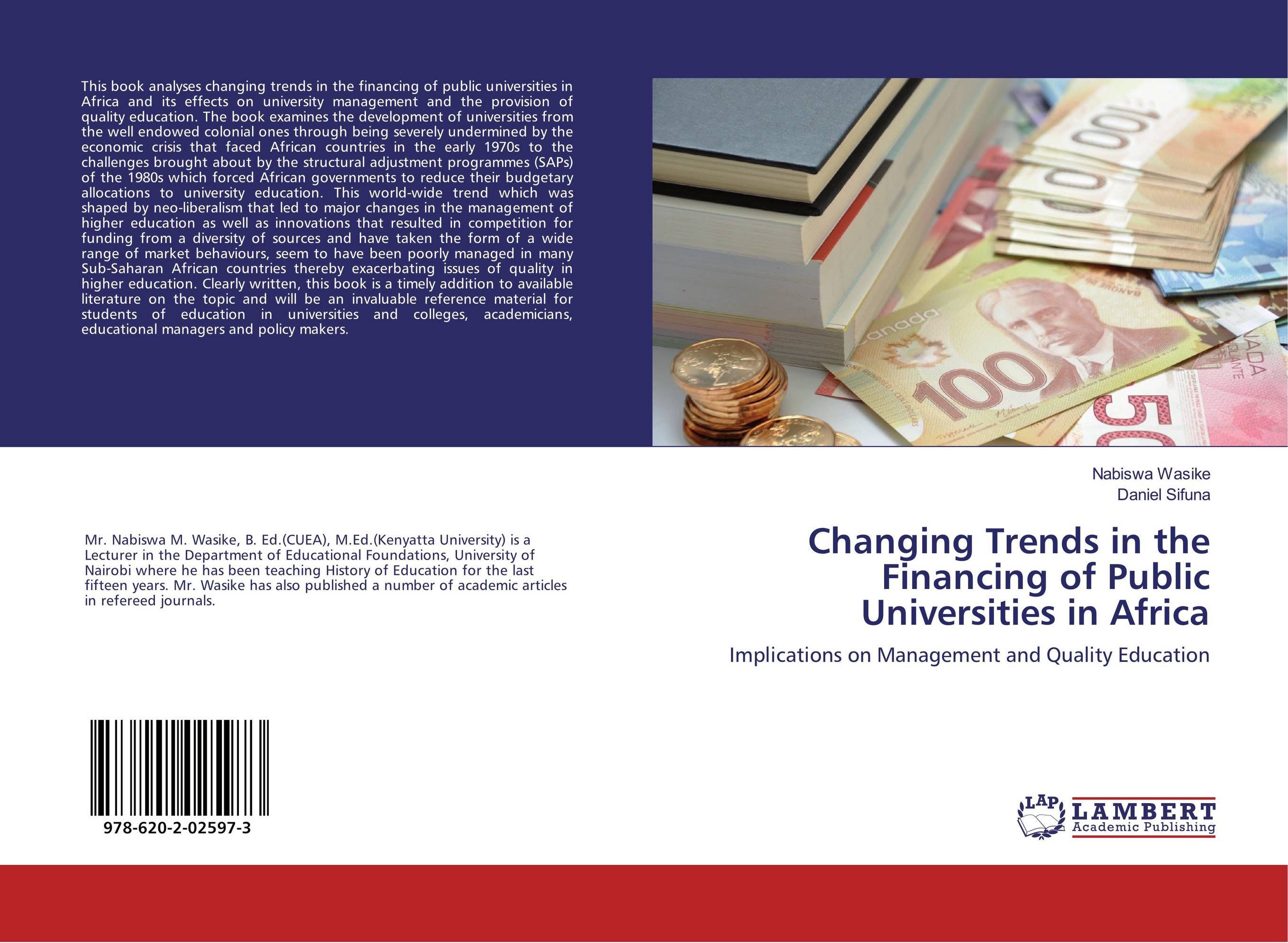| Поиск по каталогу |
|
(строгое соответствие)
|
- Профессиональная
- Научно-популярная
- Художественная
- Публицистика
- Детская
- Искусство
- Хобби, семья, дом
- Спорт
- Путеводители
- Блокноты, тетради, открытки
Changing Trends in the Financing of Public Universities in Africa. Implications on Management and Quality Education

В наличии
| Местонахождение: Алматы | Состояние экземпляра: новый |

Бумажная
версия
версия
Автор: Nabiswa Wasike and Daniel Sifuna
ISBN: 9786202025973
Год издания: 2017
Формат книги: 60×90/16 (145×215 мм)
Количество страниц: 64
Издательство: LAP LAMBERT Academic Publishing
Цена: 21414 тг
Положить в корзину
Позиции в рубрикаторе
Сферы деятельности:Код товара: 178274
| Способы доставки в город Алматы * комплектация (срок до отгрузки) не более 2 рабочих дней |
| Самовывоз из города Алматы (пункты самовывоза партнёра CDEK) |
| Курьерская доставка CDEK из города Москва |
| Доставка Почтой России из города Москва |
Аннотация: This book analyses changing trends in the financing of public universities in Africa and its effects on university management and the provision of quality education. The book examines the development of universities from the well endowed colonial ones through being severely undermined by the economic crisis that faced African countries in the early 1970s to the challenges brought about by the structural adjustment programmes (SAPs) of the 1980s which forced African governments to reduce their budgetary allocations to university education. This world-wide trend which was shaped by neo-liberalism that led to major changes in the management of higher education as well as innovations that resulted in competition for funding from a diversity of sources and have taken the form of a wide range of market behaviours, seem to have been poorly managed in many Sub-Saharan African countries thereby exacerbating issues of quality in higher education. Clearly written, this book is a timely addition to available literature on the topic and will be an invaluable reference material for students of education in universities and colleges, academicians, educational managers and policy makers.
Ключевые слова: Financing, Management, universities, education, globalisation, neo-liberalism, quality, Sub-Saharan Africa



